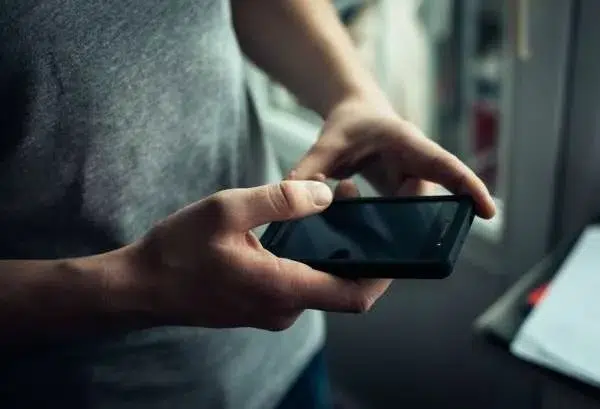Smartphones are causing some users to experience heightened anxiety when used for social interactions, new research from Britain shows. The distress may stem from the persistent need many users feel to repeatedly review and immediately respond to any incoming email, text, tweet, or alert. Such compulsive behavior has lead researchers to suggest that the mushrooming use of smartphones to sustain social connections, friendships, and personal networks may be associated with increased stress.
Instant Access to Friends: Convenient and Stressful!
Research conducted by British psychologist Richard Balding, MSc, of the University of Worcester, England and his colleagues, was presented at a conference of the British Psychological Society in Chester, England on January 12, 2012.
Surprisingly, the investigators found that the devices, including iPhones, Blackberries, and Androids, did not result in a rise in stress levels when used for professional purposes. Instead, the added stress was found in social settings. The research results revealed that despite the ability of the phones to provide instant connections with friends and family, the handheld gadgets were actually contributing to stress, rather than alleviating it, when used to manage personal contacts.
More than 100 people were recruited to participate in Balding’s study, responding to questions about their phone usage in surveys and completing a psychometric stress test. The participants included university students, retail industry employees and government workers.
Can a Phone Really Cause Happiness, Anxiety, and Addiction?
The findings revealed that the multi-purpose phones were initially utilized to manage work obligations, but ultimately became tools to control social networks. As that type of usage increased, so did the stress levels. The results also showed that 37 percent of adults and 60 percent of teenagers considered themselves addicted to their phones.
Additionally, those reporting the greatest increases in anxiety stated that they experienced phantom vibrations of new incoming messages even when no such alerts actually arrived. Many also reported feeling unhappy or stressed when their phones were turned off or when they did not receive any new messages.
As noted by other researchers not involved in the study, more research is necessary before a cause-and-effect relationship can be confirmed. It may be that people who are already stressed are more prone to repeatedly check their devices and always keep them turned on. On the other hand, many people are able to moderate smartphone usage to ensure it is helpful, time saving, convenient, and enjoyable, rather than a source of stress, tension and disappointment.
American Smartphone Usage is High and Growing
Nevertheless, the study, which is considered preliminary as it has not yet been published in a scientific journal, leads investigators to suggest that employers should be aware of the added stress and negative impact smartphones may have on their employees.
According to the Pew Research Center, more than one-third of American adults have a smartphone, with an overwhelming majority using the devices to access emails or to search the internet daily. Many people also use their phones to play games, watch videos through such sites as YouTube, and manage social networks via Facebook. With the rapid influx of new apps introduced to the public, and the devices’ ability to provide constant information, instant news, and ongoing entertainment, smartphones usage is expected to continue proliferating rapidly.
Psychological Effects
Sleep Concerns
Although there isn’t proof yet linking cell phone use to depression studies have indicated that our reliance on technology can harm our sleep patterns leading to a decline in mental well being. The blue light emitted by devices can disrupt the brains production of melatonin, a hormone for regulating our sleep wake cycle. To promote sleep experts from the National Sleep Foundation suggest avoiding cell phones, computers and TVs for at least 30 minutes, before bedtime.
Relationship Problems
While people often give priority to their connections, social media profiles, games and other preferred apps it is possible for their offline relationships to suffer as a result of neglect. This can result in a decline or even the complete breakdown of relationships.
Anxiety & Depression
Research has shown that students in college who heavily rely on their phones tend to feel more anxious when they are separated from their devices or during their free time. Many individuals often express levels of depression and anxiety due, to their use of social media primarily because they feel excluded or constantly compare themselves to others.
Finding a Healthy Balance
As mentioned earlier cell phones aren’t entirely negative. There are advantages to having such convenient screens. They enable us to stay connected with loved ones who’re far away provide parents the opportunity to be more closely connected with their teenagers offer easy purchasing of both essential and non essential items through a simple swipe on our devices and grant us instant access to information right at our fingertips. Like with anything, in life finding a balance is crucial.
Limiting Phone Time
Many smartphones have features that keep track of how time you spend using your phone each day. This can be really helpful if you want to reduce the amount of time you spend on your phone. To start try checking how time you typically spend on your phone each day. This will help you gradually cut down on screen time. You can also find settings that can block or limit the amount of time you spend on apps.





